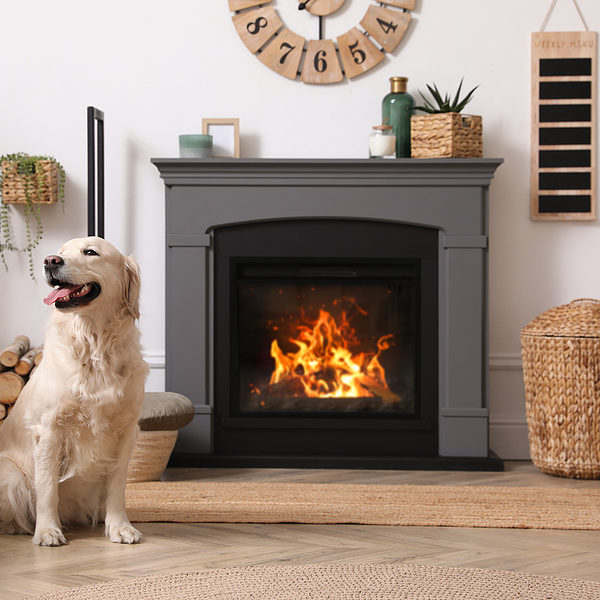What Kind Of Fireplace Do I Have?
Maybe you just purchased or inherited a home with a fireplace; you probably have many questions about using it as a heat source and not mere decoration. If you’re new to fireplaces, the first question that you might have is, “What kind of fireplace is it?” In this post, we look at the four typical fireplaces you’ll find, how to get the most out of them, and how to use them safely.
 Fireplace Types
Fireplace Types
As discussed, four types of fireplaces are common in the United States. They are wood-burning, gas, electric, and pellet. Let’s look at each one and its pros and cons.
Wood Burning Fireplaces
Wood-burning fireplaces are the most popular type of fireplace in the country. What makes wood fireplaces so popular is the crackling sound and the smell of the wood burning, that’s romantic and nostalgic. However, wood-burning fireplaces require a lot of work and maintenance, and they can be a fire hazard if you’re not diligent about regular cleaning.
Gas Fireplaces
Gas fireplaces are increasingly popular because they offer much of the ambiance of a wood-burning fireplace without the hassle. Gas fireplaces run on natural gas or propane, making them more convenient than wood because you never have to worry about running out.
Gas fireplaces are easy to use and maintain and produce a lot of heat. However, depending on where you live, the price of gas can be prohibitive. Moreover, although gas fireplaces have become more realistic, they still can’t match the experience of using a traditional wood fireplace.
Pellet Fireplaces
Pellet fireplaces are similar to wood-burning fireplaces, but they use pellets instead of logs. Pellets are made from compressed sawdust or other biomass materials, so they’re a renewable fuel source. Pellet fireplaces are easy to use and maintain, and they produce very little smoke. Compared to wood and gas, pellet stoves and fireplaces require more maintenance and cleaning, and they’re not as visually appealing.
Electric Fireplaces
Like gas, electric fireplaces are becoming popular alternatives to wood because they’re easy to use, energy efficient, and require little maintenance. However, electric fireplaces have a shorter lifespan than gas, wood, or pellets and don’t give you an authentic fireplace experience.
Fireplace Safety
Getting a home with a fireplace can be exciting, and you’ll look forward to using it for the first time. However, you must take precautions regardless of which type you have to operate it safely.
Wood Fireplace Safety
Before you light your first fire of the season, hire a certified chimney sweep to clean and inspect your fireplace and chimney. Pros know what to look for and can advise you on how to get the most enjoyment out of your fireplace.
Never leave a fire unattended, and be diligent about cleaning the ashes from the firebox before starting another fire.
Finally, install smoke alarms throughout the house and have an escape plan should something go wrong.
Gas Fireplace Safety
While gas fireplaces are safer than wood burning, they’re not risk-free. Like traditional fireplaces, never leave your gas fireplace unattended while running. Most gas fireplaces have glass doors, which can become extremely hot, making them dangerous if you have young children or pets. Furthermore, it’s recommended to hire a professional to conduct an inspection and tune-up annually.
Pellet Fireplace Safety
Pellet stoves and fireplaces are considered safe home heating sources because the combustion occurs in a sealed combustion chamber, eliminating the risk of sparks and embers that can lead to a fire. Like the other fireplaces on our list, it’s recommended that you hire a professional for an annual inspection and maintenance of your pellet stove.

Furthermore, to get the most out of your pellet fireplace, use the right pellets, according to the manufacturer. If you don’t know this information, check with your local fireplace professional.
Electric Fireplace Safety
Like pellet stoves, electric fireplaces are very safe because there’s no actual fire, and they don’t produce gases or smoke, which can aggravate allergies or respiratory complications. The main concern about electric fireplaces is keeping young children away from them when they’re operating.
Whether you’re new to the world of fireplaces or a seasoned owner, call the experts at Mercer County Chimney Services at 609-802-5288 to maintain your fireplace for a safe, enjoyable experience year after year.


